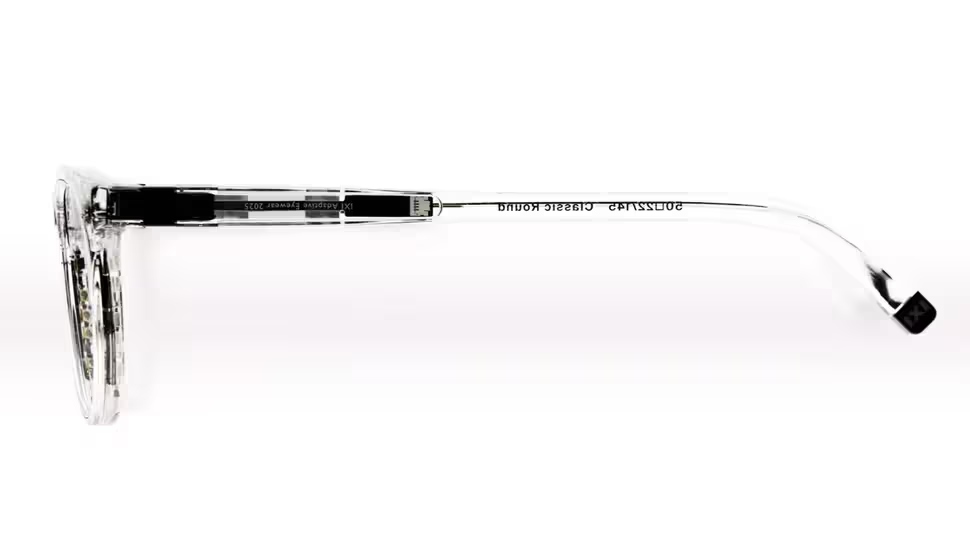4 Minutes
The Next Generation of Smart Eyewear: Autofocus Glasses Explained
For millions of people dealing with farsightedness, traditional glasses have always come with compromises—squinting to read road signs, tilting your head to find the right focal point, or peering over the rims for close-up tasks. Now, a revolutionary leap in optical technology may soon change all that. Autofocus smart glasses, equipped with real-time eye-tracking and adaptive lenses, are promising a seamless, all-in-one solution that could render bifocals and progressive lenses obsolete.
Breaking Down the Technology: How Do Autofocus Glasses Work?
At the forefront of this innovation is Finnish startup IXI, which is developing state-of-the-art eyewear featuring adaptive liquid crystal lenses and miniature eye-tracking sensors. These tiny sensors continuously monitor where you are looking, instantly adjusting the lens focal length to for sharp, clear vision—whether you’re checking your smartphone, reading a menu, or glancing up at a distant screen. This real-time adaptability is powered by sophisticated algorithms and sensors that use harmless light pulses to measure the distance between your eyes and the object you’re focusing on.
According to IXI, the system can refocus lenses in just 0.2 seconds—twice as fast as the average human eye, which typically takes about 0.4 seconds. This means that users should experience a virtually instantaneous transition between different visual tasks, with no frustrating lag or awkward head movements.
Competing With Traditional Solutions
Until now, the go-to corrective solution for presbyopia (age-related farsightedness) has been bifocals, which are split into two distinct zones for distance and close-up vision. While effective, they require users to shift their gaze or tilt their heads unnaturally, and finding the right focal "sweet spot" can be a challenge. Progressive lenses, which offer a more gradual transition between zones, help but still fall short of providing genuinely dynamic, all-around clarity.
Autofocus smart glasses change the game by providing seamless vision across all distances, eliminating the need for multiple pairs of glasses or those uncomfortable tilting habits. This leap towards true digital vision correction could be transformative for anyone struggling with traditional multifocals.

Who is Leading the Charge?
IXI is not alone in this race to redefine smart eyewear. French startups Laclarée and Elcyo are also developing adaptive lens technologies, aiming to tackle the same problem. However, none have yet launched a device that is fully ready for the consumer market, largely due to challenges around miniaturization, medical regulation, and product durability.
Nonetheless, IXI’s development has received a strong boost, securing over $36 million (approximately £27 million / AU$56 million) in funding. This financial backing is helping the company accelerate research and engineering, with the ultimate goal of turning autofocus eyewear from a laboratory concept into an everyday accessory.
Design, Comfort, and Usability
An essential requirement for consumer adoption is that these smart glasses remain lightweight, stylish, and unobtrusive—indistinguishable from regular eyeglasses. IXI prioritizes discretion by ensuring that the electronic components are tiny enough to fit within standard-looking frames, negating the need for bulky headsets or noticeably heavy devices.
Integrating batteries and moving optical components presents its own set of engineering challenges, particularly when it comes to durability and user comfort. Prescription-grade optics must also comply with strict health and safety regulations, which adds a further layer of complexity to product development.
The Future of Intelligent Eyewear
The potential for autofocus smart glasses goes far beyond simply replacing bifocals or reading glasses. For the estimated 1.8 billion people worldwide affected by presbyopia, this technology could deliver unprecedented freedom—granting razor-sharp vision at any distance, at any moment, and in any scenario, all through a single, adaptive set of frames.
Smart eyewear is poised to become a key segment in the wearable technology market, merging medical innovation with consumer electronics. As startups like IXI bring these autofocusing solutions closer to reality, we may soon see a world where switching glasses—and awkward head tilts—are things of the past, replaced by a new era of seamless, personalized vision correction.
Source: techradar



Comments